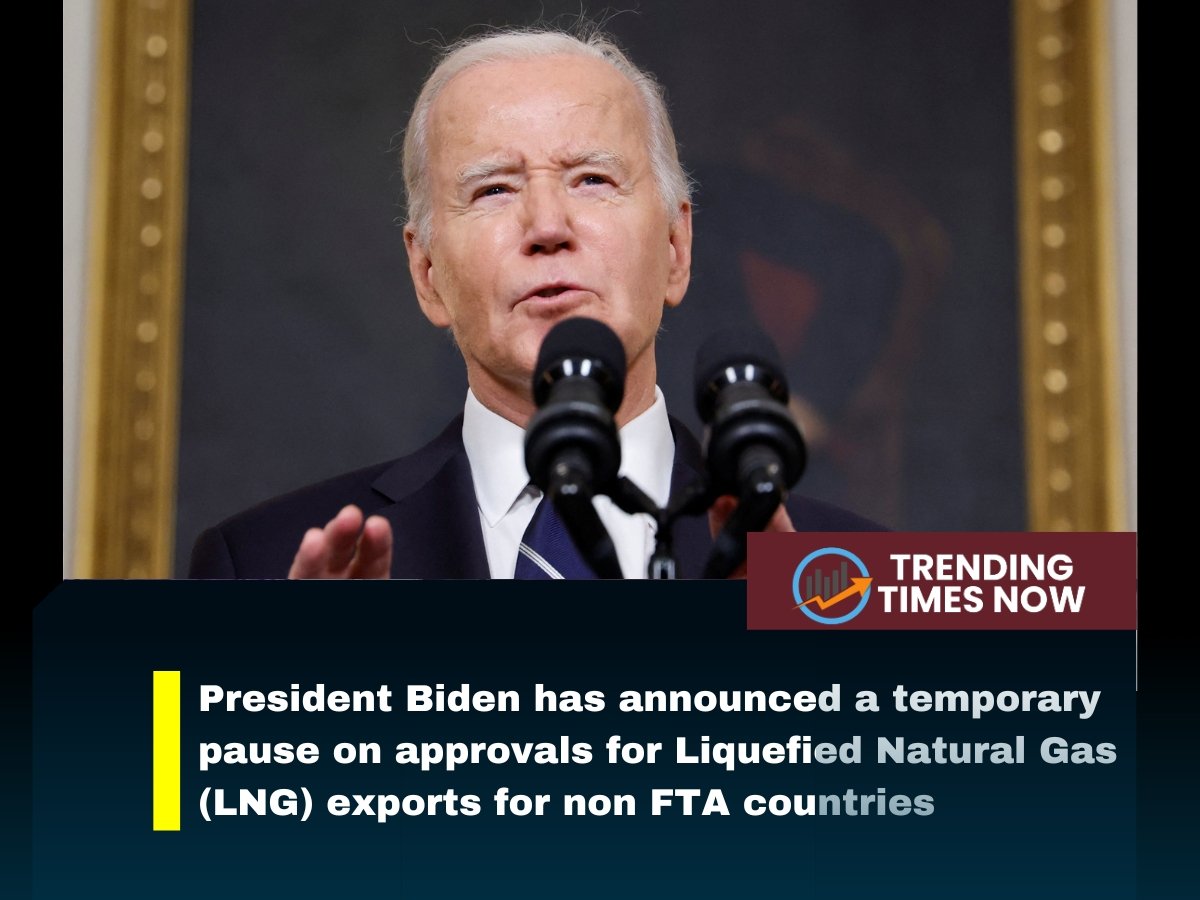In a significant development impacting both global energy markets and climate policy, President Biden has announced a temporary pause on approvals for Liquefied Natural Gas (LNG) exports to non-Free Trade Agreement (FTA) countries. This decision, part of the Biden-Harris Administration’s ambitious climate agenda, aims to reassess the environmental and economic implications of these exports.
The Strategic Pause
The White House plans to freeze new natural gas export projects for up to 15 months during a comprehensive review. This review will examine the industry’s climate change impacts and its effects on local communities. Notably, this decision may delay the development of the CP2 project, a significant export terminal proposed in Louisiana.
My Administration is pausing pending decisions on new Liquefied Natural Gas exports.
During the pause, we’ll take a hard look at the impacts of exports on costs, energy security, and climate change – the existential threat of our time.
We’re committed to getting this right.
— President Biden (@POTUS) January 26, 2024
Global Impacts and Domestic Priorities
This move reflects a nuanced balancing act between global energy needs and domestic environmental priorities. While the U.S. is the world’s leading LNG exporter, concerns have grown over the climate footprint of these exports. The Biden administration’s approach seeks to address these concerns while maintaining energy security for the U.S. and its allies.
Read: Biden’s Bold Move: Overdraft Fees Slashed to $3 in Banking Revolution
The Environmental Equation
The climate impact of LNG exports is complex, varying by destination and usage. For instance, some countries, like China, use LNG to replace coal, thereby reducing emissions. However, other nations might use it in ways that are less beneficial for the climate. This complexity underlines the need for a detailed analysis of the total climate impacts of LNG exports.
Economic and Health Considerations
The decision also takes into account potential cost increases for American consumers and manufacturers, as well as the health risks to communities near export facilities. This holistic approach underscores the Administration’s commitment to balancing economic, environmental, and health priorities.
Political and Industry Reactions
Environmental groups have lauded the decision as a significant step in combating climate change, emphasizing the need to prioritize the nation’s interests and climate science. However, the gas industry has expressed concerns, warning that this pause could disrupt global energy markets and undermine U.S. commitments to its allies.







